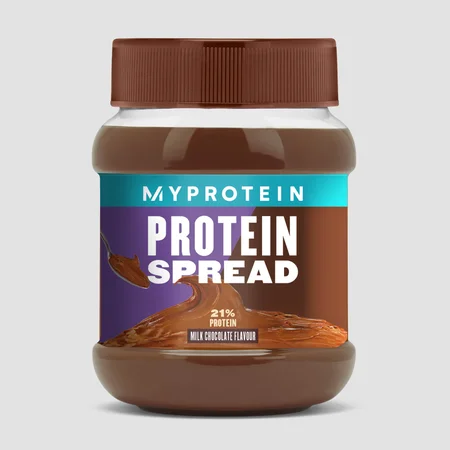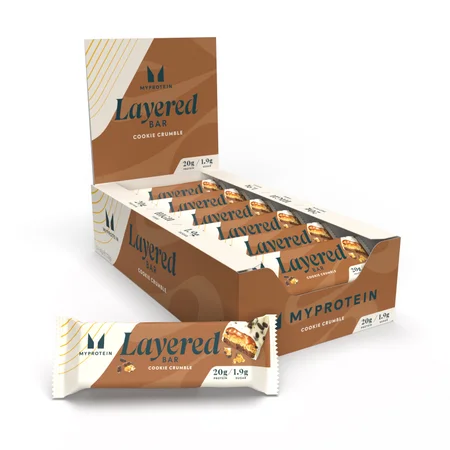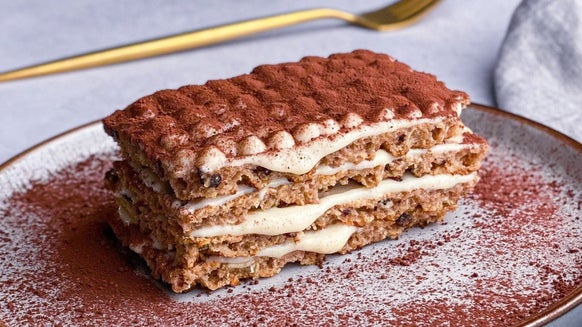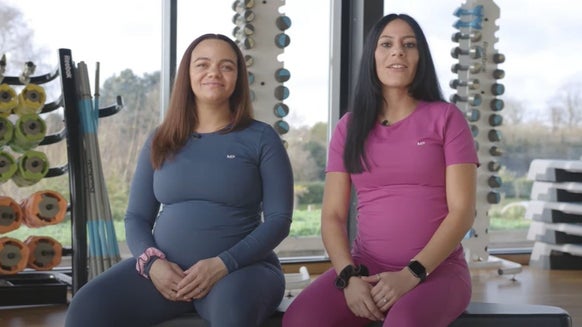Lose Weight While Eating What You Want | Nutritionist Explains
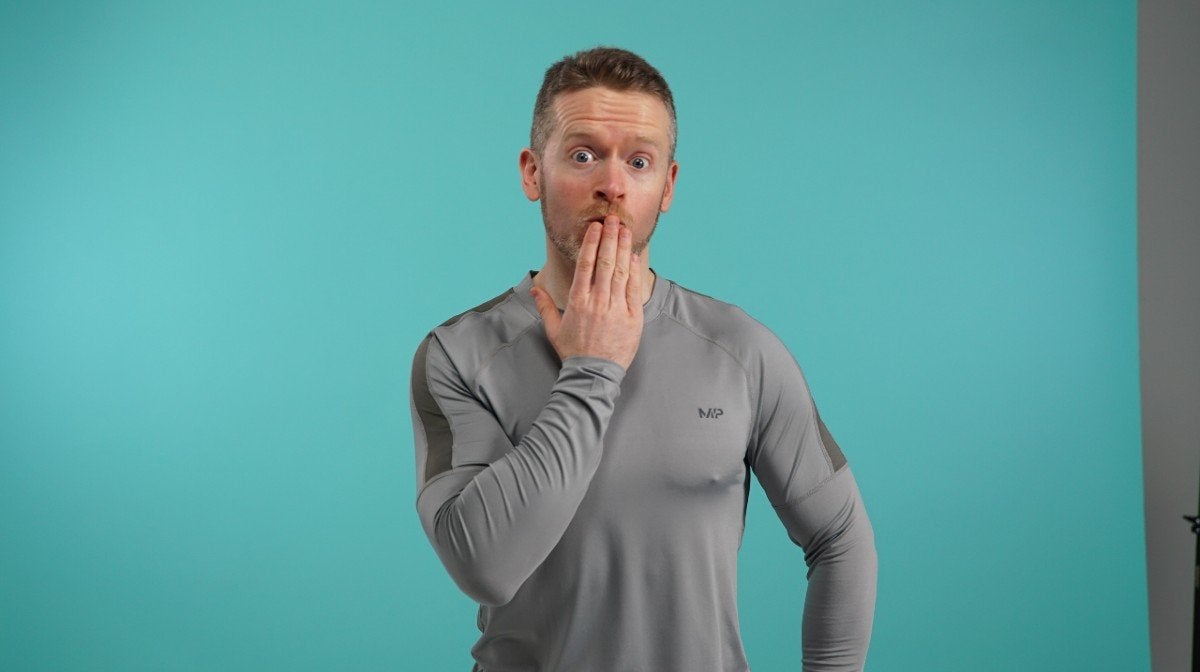
If you’re trying to lose weight, one of the best things you can do is eat your favourite foods. And no, this doesn’t apply only to people who love quinoa and chickpeas. Fans of pizza, ice cream and chocolate, rejoice. All these can be included in your diet if you want them. Why? Because why give up the things you love?
Don’t take my word for it. This comes directly from the mouth of nutritionist and PhD researcher, Richie Kirwan. We’ll let him explain further. But please do bear in mind that he’s not telling you how to live your life or recommending any particular diet. He's simply giving you the facts so you can make informed choices. So, here’s how to lose weight while eating what you want.
Fat & sugar
“Fat and sugar” strike fear into the hearts of many dieters. Few people associate them with a lean physique, so maybe it’s a bit of a surprise to you that an article about weight loss starts with them, but here we are. We're just full of surprises.
But this speaks to a wider problem of nutrition understanding. Many people are led to believe they can only lose weight if they go on a diet that eliminates all the foods they love. But this is wrong. Nothing should be off the menu when you’re trying to lose weight. While highly restrictive diets may lead to short term weight loss, they’re often unsustainable, leading to weight gain over a longer period.
Restrictive diets
Richie knows how to make information easy to digest, and for this video he’s conjured some imaginary friends. Stick with us. Bobby #1 and Bobby #2 are identical twins, and both want to lose weight. The number of calories they both need to maintain weight is 2,500, so they need to eat less than this to lose weight. This would put them in what’s known as a calorie deficit.
If you’re new around here, here’s some more info on calorie deficits:

Lose Weight Sustainably With A Managed Calorie Deficit
Expert nutritionist explains all
A sustainable calorie deficit for the twins would be to eat 200 calories fewer than their maintenance, leaving them on a diet of 2,300 calories per day. To make things a bit more exciting, we’re going to put the two Bobbies on different diets. Bobby #1 is going on the ice cream diet. On this diet, he gets all his calories from ice cream. This works out at roughly two-pint sized tubs a day, in case you were wondering. Bobby #2 is going on the “banavacado” diet and will eat nothing but supposedly “good’ foods”: bananas and avocados. This is roughly five avocados and eight bananas a day.
You may assume these two diets are worlds apart, but in terms of macronutrients, they’re surprisingly similar:
| Bobby #1 | Bobby #2 | |
| Ice cream | Avocados & bananas | |
| Calories | 2299 | 2298 |
| Fat | 135g | 135g |
| Carbohydrates | 235g | 297g |
| Protein | 33g | 26g |
So, one question remains. If both Bobbies were to maintain this diet for two weeks, who would lose more weight? Well since the diets boast a similar macronutrient profile and the twins are completing the diet for the same amount of time, they will lose roughly the same amount of weight, even though one is eating “bad” diet food and the other is eating “good” diet food.
Should we follow strict diets?
In case it needs clarifying, you shouldn’t follow either of these two example diets. Neither is well balanced, and you’d quickly end up with some serious nutrient deficiencies, unsurprisingly. The amount of protein in both diets is also negligible, so you can say goodbye to any hope of gains.
But it’s more than possible to create a well-balanced diet while on a calorie deficit. You'll need adequate protein and a wide variety of nutrient-dense foods like fruit, veg, wholegrains and legumes, which all host a plenty of vitamins, minerals and fibre. This allows you to eat a greater volume of food and will leave you feeling fuller. And if you get your calculations right, there should be enough calories left over to include some treats. It’s all about moderation.
Why is it important to eat what you want?
As we’ve said hundreds of times, the biggest driver of weight loss is a calorie deficit. Fact. But the most important factor for weight loss success is consistency and the ability to maintain a diet long term.
Extreme diets often work well initially. People lose weight due to the initial calorie deficit but eventually give up because the diet is so strict, and the food choices are so limited.
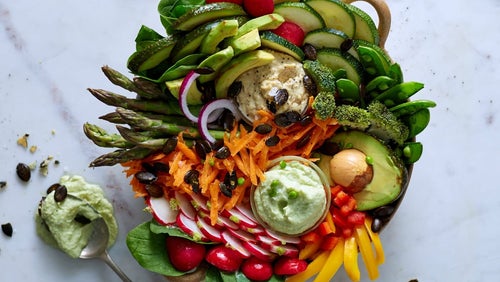
Nutritionists Review The Most Popular Diets of 2021 So Far
Just because it's popular, doesn't mean it's good for us.
Flexible dieting
A flexible diet is one that allows people to eat a wide variety of foods and have some treats. Not only does a flexible diet lead to a better relationship with food, because it stops you from labelling foods as “good” or “bad”, but it can also lead to more successful and sustainable weight loss in the long term.
Take home message
Richie isn’t telling you what to do, but if you’re craving sweet treats and you’re trying to lose weight, then that’s not an issue. Where there’s a will, there’s a way. Use up any leftover calories for a slice of pizza or a chocolate bar. . After all, denying yourself of the foods you love is not a sustainable diet to follow long term.


